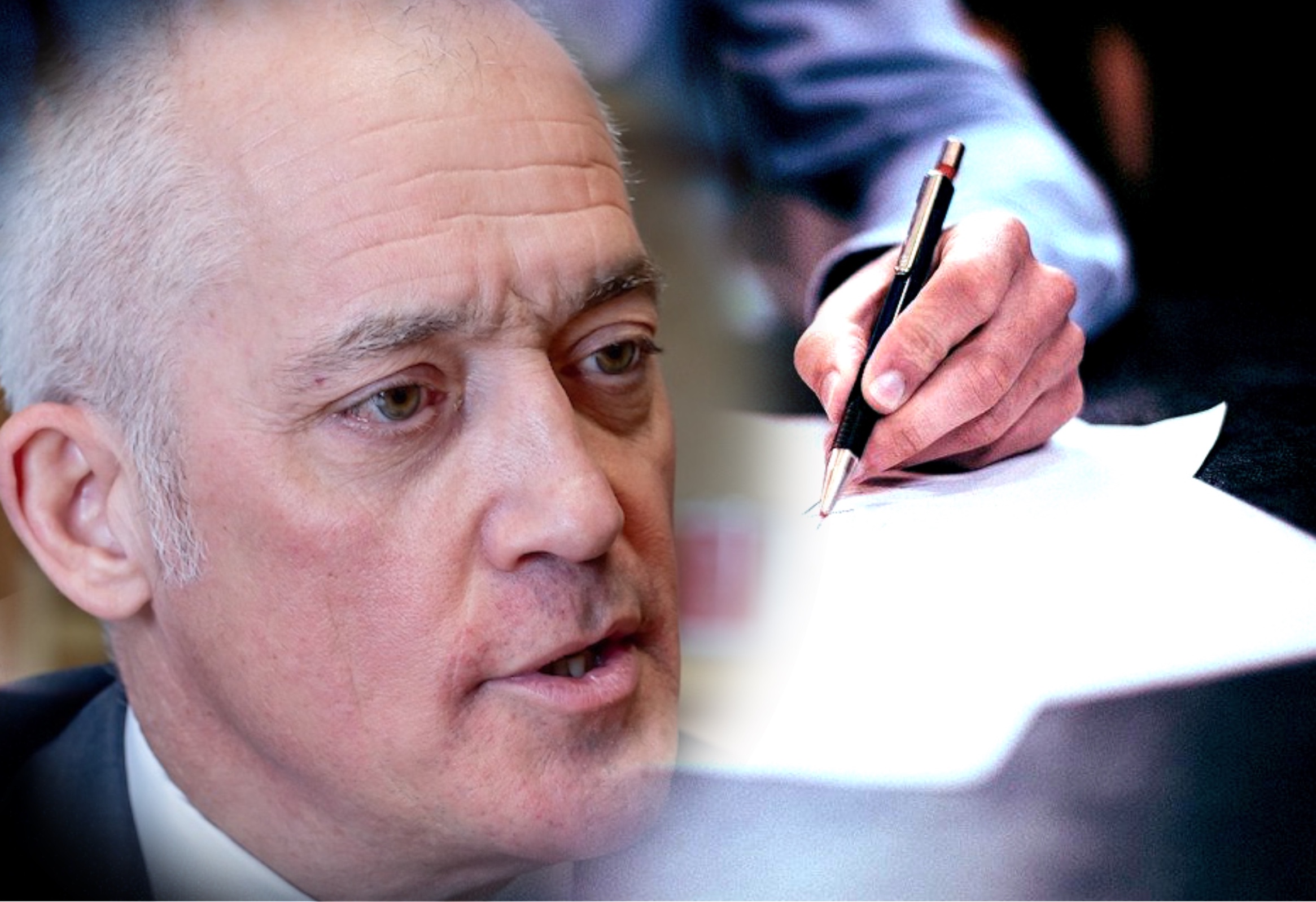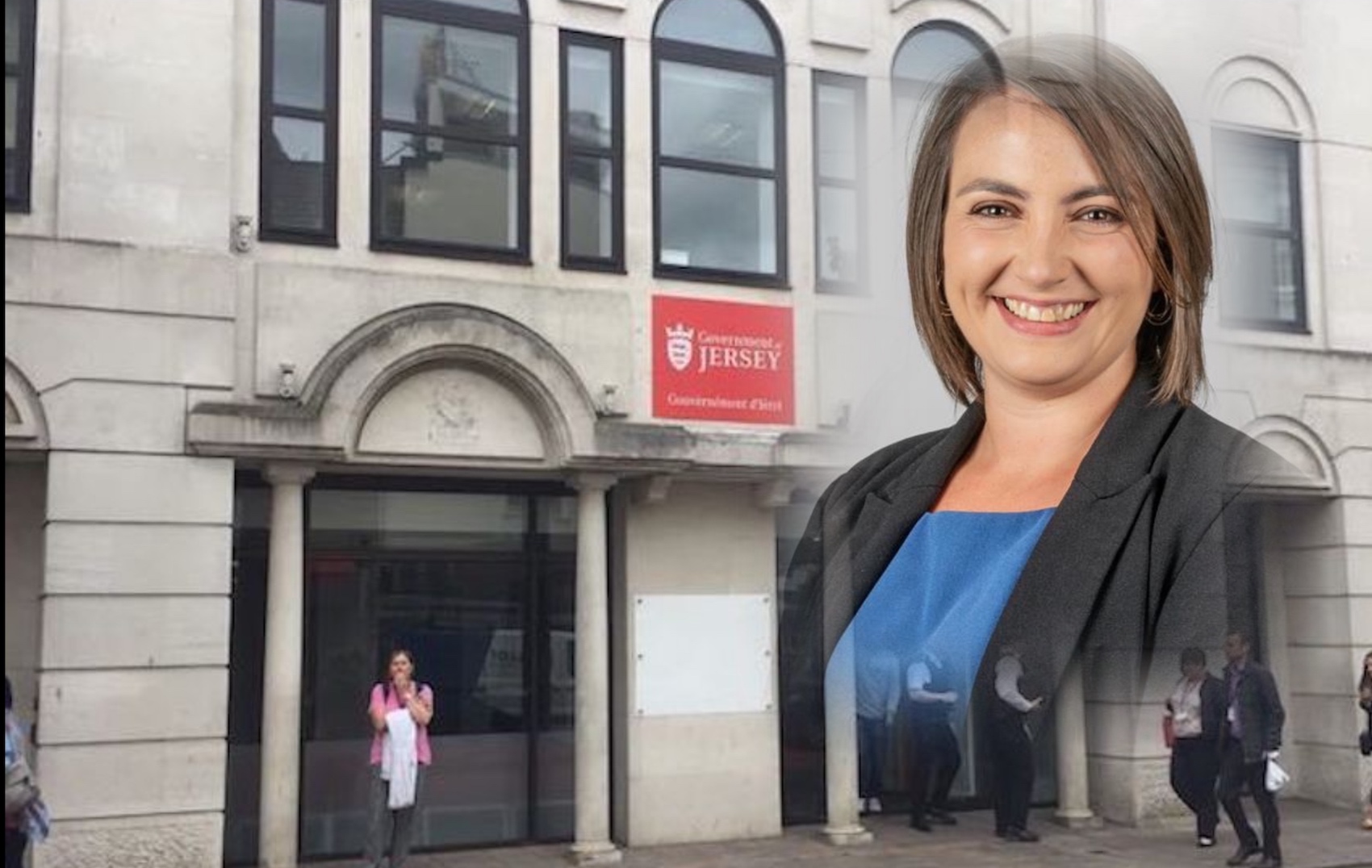


When a recent report on Island Identity was being put together, there was a “heated discussion” over whether ‘Anglicisation’ should be referenced.
Senior civil servants had reportedly strongly pushed back on the suggestion that Jersey’s unique heritage had somehow been disrupted in recent years by an ‘imported’ UK-style culture, and that those in Government ought to learn more about the terrain they were working in.
The word ‘anglicisation’, alongside jokier expressions such as ‘Westminster-on-Sea’ to describe the island, have in recent years become some of the most frequent epithets reached for by local commentators as they reflect on how Jersey has changed – with that uptick neatly coinciding with the advent of ‘OneGov’.
Express analyses the legacy of the landmark shake-up to how the island is run and the debates it has opened up about identity, politics, transparency, and how much we value the people that make the whole system work.
When former Oldham and Westminster City Council Chief Charlie Parker joined the ‘States of Jersey’ (later to become 'Government') – recently marred by the Innovation Fund and Care Inquiry scandals, and struggling with declining productivity – in late 2017, he warned everyone involved in running the island must either get on the “modernisation train” or “be left on the platform.”
“Not changing is not an option – for Ministers or for the public. The issue isn’t about whether we change; it’s about how we change. And I’ve been hired to be a catalyst for that change – to help us to realise the ambitions and the vision that islanders have for their public sector.”
It was clear from the outset that Mr Parker was an expert in “transformation."
Oldham was a town that once knew its place in the world as the cotton production capital of Europe, whose population had gone from 14,000 to 250,000 during the Industrial Revolution. However, by the 21st century, it was instead full of people “unsure of their future” and needing a boost in confidence.
Under Mr Parker’s leadership, it went from worst Local Authority in 2008 to the most improved in the country in 2012, with targeted savings of £140m over five years and 800 jobs cut.

Pictured: the proposed new government HQ building on the site of Cyril Le Marquand House.
When he was appointed to the top role in Jersey’s Government, Chief Minister Senator Ian Gorst said he was “confident” Mr Parker would be able to achieve similar successes in Jersey.
What was less clear at the time, however, was that Mr Parker’s transition package for Jersey would very closely resemble – if not mirror – what he had carried out elsewhere.
In March 2018, he unveiled the blueprint for ‘OneGov’, which would involve tearing up the current structure of Jersey’s Government, and creating a new ‘Whitehall’-style structure.
It would involve changing and creating a number of departments, and bringing them all together into one building, which we now know will be at the same site of the former HQ, in a bid to make things more “efficient”, get departments collaborating and stamp out “siloed” working – one of the main reasons he had previously diagnosed Jersey’s Government as “broken”.
Two departments in particular echoed transformation carried out by Mr Parker during his time at Westminster: Strategic Policy, Planning and Performance, which has since become known among the island’s civil servants as ‘S Triple-P’, and Growth, Housing and Environment (GHE).
The accompanying launch of ‘One Front Door’ programme, which saw the La Motte Street Social Security building transformed into a customer services hub, also matched a scheme of the same name at Westminster.
“Our goal is to have a single front door, where all our services come together seamlessly for our customers whether online, over the phone or in person,” the Westminster Council’s 2017 to 2018 business plan noted. Mr Parker also made reference to the scheme in a blog post for the Local Government Chronicle entitled ‘All staff at Westminster must be leaders’.
When Express challenged Jersey’s Government on the similarities at the time, a spokesperson responded that, while some of the initiatives were UK-inspired, they were intended to address the island’s needs.
OneGov progress moved very quickly, and by early 2019, the Government had already shifted to a new, temporary HQ on Broad Street.

Pictured: Philip Le Feuvre house, previously the base for the Social Security Department, now the Government's 'one-front-door'.
At the time, work had just got underway to complete the new ‘Target Operating Model’ (TOM), which was initially expected to be completed by the end of 2019, but, even today, still remains unfinished.
It was meant to be a family tree-style management map laying out every single job in the Government, and how it joins up with others. If any staff members were found to be doing the same, or very similar, roles, that “duplication” was to be weeded out. To help with this, a freeze was placed on all but top-level “essential” hires.
It was planned to start at the most senior levels, and work its way down through the organisation.
As work to understand just how ‘efficient’ each staff member was got underway, the number of departures of long-serving civil servants at the top tiers of government appeared to multiply. So too did the number of new recruits - many of whom were from outside the island.
When Mr Parker started work in November 2017, he brought with him a handpicked ‘Transition Team’ of four consultants from the UK to help him get to grips with the ‘challenges’ facing the island. They would internally became known later as ‘Charlie’s Angels’ or ‘the Four Horsemen of the Apocalypse’, according to one member, Stephen Hardwick, who eventually transitioned to Communications Director.
Then the following month, the team had swelled further: three more had been taken on from Andrew Templeman Ltd – a firm that had previously carried out work for Westminster City Council. Just one month in, the additional appointments had put the cost of the transition team at nearly three quarters of a million.
It was an early signal of a new trend towards external expertise – the rationale always being that much of this expertise was vital to the success of OneGov, and could not otherwise be found in the island. Over just six months in 2019, the Government racked up a bill of more than £11m.
External expertise also appeared to be favoured when it came to appointing permanent and interim Director Generals – replacing the role of Chief Officers – to lead each department.
Such appointments left a sour taste among many existing civil servants – not least because of the eye-watering salaries they attracted. The Interim Director General of Health, for example, was earning £27,000 a month – close to the annual salary of a health care assistant.
They also stung because some were individuals with whom Mr Parker had worked before – one of whom beat off competition from 33 other applicants.
Many were insulted and outraged at the ‘one rule for us’ approach to recruitment at the top levels at a time when they felt they were under-resourced, overstretched, and, crucially, being denied the pay rises they were demanding because, apparently, there was “no more money” due to an impending £30m to £40m black hole in the Government's finances, which no one had previously seen.
Some more senior long-serving Government workers feared they were being overlooked for promotion or eyed up for redundancy simply due to being part of the “legacy” structure, which OneGov was intended to uproot.
Many privately expressed that they felt alienated by the new system and the jargon that went with it, while some reported an adversarial relationship building between ‘old’ and ‘new’ staff. Indeed, a 2019 Scrutiny report warned that Government officials needed to cut down on buzzwords and jargon if they want to keep existing civil servants “onside”.
A separate report tasked Mr Parker with playing more positive “‘mood music’ – i.e. how good the future can be, rather than how poor the past was."
By that time, within just six months of the Government announcing efforts to cut its headcount, half-a-million was spent on redundancy payments and compromise agreements.
Even before this point, morale was already low. It had been driven downwards by the toppled Workforce Modernisation Programme, which would have seen some individuals given a real-terms pay cut, and an apparent failure to stamp out a “high level” of secret bullying within the institution, with employees allegedly “shouted at”, “belittled”, and been made the subject of “loose talk and gossip.”
The more recent hits to confidence on top of this made it all the harder for workers to get behind the Government’s £3.5m bid to instil a ‘Team Jersey’ attitude into all 7,500 of them.
UK consultants TDP Development beat off 23 other companies to get the contract to run the initiative. Little detail was provided about what it would actually entail other than to drive “culture change”.
It later emerged that the firm had previously been used by the UK councils that Mr Parker previously led: Oldham and Westminster. Council documents show that TDP Development was drafted in amid a time of mass change at Westminster amid a need to find £100million of savings in four years – a target that, the following year, Jersey would also see applied to itself.
Despite constituting the largest shake-up of the Government in living memory, none of the OneGov initiatives and recruitments was ever voted on by elected States Members. They did, however, facilitate them by the approval of the Machinery of Government Law, which gave Mr Parker unprecedented powers, within the same month that he unveiled his OneGov blueprint.
At the time, former Bailiff, Minister and Senator Sir Philip Bailhache warned that these changes ought to be scrutinised more closely as they were being debated in “unseemly haste”.

Pictured: Sir Philip Bailhache, who felt some of the changes to the island's system were being pushed through with "unseemly haste."
Aside from employee morale problems, with the pay dispute crystallising into protests, other issues with the new Government structure and drive for £100m in efficiencies were coming to the fore. Some departments felt they were being asked to cut when they could cut no more – including the Prison Service, which wrote a highly critical letter on the matter, saying that the programme would risk their ability to “protect the public and reduce reoffending.”
Others didn’t understand why their departments needed to be restructured when they believed themselves to have previously been operating successfully. One example was the island’s celebrated Probation Service, which had previously operated independently, but was due to be placed under the Justice and Home Affairs department as part of the new TOM with a new Director of Criminal Justice and Offender Management.
The creation of ‘super-department’ GHE, however, probably proved to be the most controversial.
It meant that Infrastructure, the department that would normally put forward planning applications, and Environment, which would normally be asked to approve them, would be answering to a single Director General. The potential for conflict of interest was clear, critics said.
The most bizarre element of the department, however, was that, where previously one Minister was assigned to oversee a single department with a single Chief Officer, GHE meant that there was one Director General answering to four different Ministers: Economic Development, Infrastructure, Housing and Environment.
Environment Minister Deputy John Young – himself a former Chief Officer of the former Planning and Environment Department - was deeply unsettled by the change, not least because he felt his team was already under-resourced.
Economic Development Minister Senator Lyndon Farnham protested that there was no real “affinity” between his portfolio and his colleagues’ – an argument he eventually won, with an Economy Department, within the Office of the Chief Executive, being created in response.
It later emerged that GHE Director General of the time, John Rogers, was kept in the dark about this shake-up that would significantly slash his portfolio. Shortly after finding out, his departure was announced, with the latest Government accounts revealing that he was given a golden handshake worth £192,500.
If shaking up Government was the intention, OneGov had certainly achieved it, but, as the process of implementing it continued, there were increasing questions on whether this change, with its accompanying cost, morale impact and unforeseen circumstances, was really worth it. Were there any measurable indicators of success in the modernisation programme?

Pictured: former government CEO, Charlie Parker, who worked for the first year in Jersey without specific KPI's.
One might have expected some answers to lie in the KPIs of the Chief Executive.
However, for his first full year in work, it emerged that he had been working without KPIs. When Express obtained his contract under the Freedom of Information Law, it later emerged that Mr Parker had also been able to decide on how he would go about his work. In late 2018, it was decided that he would be assessed each year by Dr John Nicholson from consultants Nicholson McBride – who had performed the same role on him in Westminster.
This assessment was to take place against six vague criteria – one of which simply being “deliver One Government and modernise public services.”
Attempting to drill into this, questions were fired at the Government from all angles - States Members, the public and the media - but always the answers were always the same: not changing was not an option and Jersey’s public sector had to save £100m.
And it appeared issues with getting information extended to Scrutiny Panels too.
Despite their importance being enshrined in law, Scrutineers said they didn’t feel their role was being respected, with requested information – whether facts, figures, businesses cases or contracts - often coming extremely late or sometimes not at all. Chief Scrutineer Senator Kristina Moore and Scrutineer Deputy Kirsten Morel frequently complained that the Government’s approach to “transparency” was lacking.
When documents were received, and face-to-face hearings were held, there were also complaints from several Scrutineers that evidence given was too frequently peppered with jargon – something which some privately speculated was an intentional means of avoiding scrutiny.
But it wasn’t just those on the outside struggling to hold the Government to account – even Ministers were having difficulties.
This was one of the key criticisms of Senator Tracey Vallois, as she stepped down from the role of Education Minister earlier this year.

Pictured: former Education Minister, Senator Tracey Vallois, who described the Government's promise to "put children first" as all "imagery."
Speaking to Express after her departure, she said she felt the Government’s commitment to “put children first” following the Care Inquiry – much like the ‘success’ of the wider OneGov regime - was all “imagery”.
While, on the outside, the Government certainly looked slicker and appeared to be putting out all the right messages, the truth, she claimed, was that pushes for tangible change behind the scenes to improve children’s lives fell on deaf ears. She said she had to “fight” senior civil servants to stop her budget being slashed amid the drive to secure £100m in efficiencies, and safeguard funding for areas like Early Years.
Former Children and Housing Minister of two years, Senator Sam Mézec, who stepped down to support a vote of no confidence in the Chief Minister in the wake of the row over Mr Parker’s second job, had a similar experience.
He described the Government’s culture as “absolutely poisonous”, going on to cite how he had found himself blocked from carrying out decisions by some civil servants.
His comments came during a debate on a proposal put forward by rebel Minister Deputy Young – who felt his department to be bruised by the new OneGov system, and who had repeatedly questioned how helpful or realistic the £100m efficiencies plan was – for a probe in late 2020 into the “machinery of government”.
"...Many question whether Ministers are really in charge of this system at all. Some ask whether centralised government with its vastly increased complexity has made it too difficult for lay elected members to be effective or is it the Corporate Civil Servants who are effectively in charge,” he said in a report accompanying his proposals, which paved the way for discussions about the former Committee system of Government and party politics.
He explained that, particularly given the current relationship with the executive, Ministerial Government was “weak”. On the one hand, he acknowledged that it got things done quickly – but that also meant ploughing ahead with potentially “abortive” projects, like the Future Hospital, rather than having them “weeded out early”, as he believed would have been the case under a Committee system.
In March this year, Senator Vallois launched a review the effectiveness of Jersey's system of Government, with high-level support from former Chief Minister Senator Ian Gorst, current Assistant Chief Minister and States Employment Board Chair Richard Buchanan and Assistant Minister and former Scrutineer Deputy Kirsten Morel.
Its remit is to explore the relationship between Ministers and the civil service, and how both sides are held to account.
The review will not explore whether the island should drop Ministerial government in favour of an alternative system, but it will consider how aspects of the former committee system could be incorporated within the current set-up.
Another key review is currently being carried out by Senator Kristina Moore’s Scrutiny Panel, assessing the overall “culture” of Government.

Pictured: Senator Kristina Moore, who is reviewing the culture of Government.
While its specific remit is to closely examine employment policy and procedure, including how bullying and harassment are handled, it’s hoped that its findings may help provide answers to continuing issues with staff morale.
However, Mr Parker was clear that initiatives to address these issues were already in train: “We know that we are on the right track with our investment in staff over the last two years through initiatives such as an enhanced employee induction, the Team Jersey programme, staff awards, new mentoring and shadowing opportunities, a women in leadership action group and new manager development programmes.
“We have also enhanced our staff wellbeing support through our employee assistance programme and by establishing mental health first aider network. We further strengthened our wellbeing support during the pandemic, recognising the needs of employees on the frontline, those who were redeployed as part of the covid response and those working from home.”
Minister for International Development, Deputy Carolyn Labey, meanwhile, wants to see another, deeper improvement made: challenging notions that Jersey has to shake off its “local uniqueness” to be internationally competitive.
“A significant proportion of our most senior civil servants are from the UK. This has enriched our civil service with important expertise and experience. However, it has also led to a culture of assumed adherence to UK policy directions, frequent mistakes in the language and concepts we use to express Jersey’s status (e.g. using the word national to refer to a UK institution), and significant disquiet among the populace whenever a new appointment or contract is awarded to UK person or firm. The Board felt that the overall effect of this propensity is a trend of increasing Anglicisation," read her board's recently-published report on Island Identity.
The key to resolving this, the board said, is better education about Jersey’s “unique constitution, heritage and culture” in order to bring about greater “social cohesion”.
As it stands, ‘OneGov’ is incomplete as a project. TOMs are still being ‘finalised’.
According to Mr Parker, the project was due to be a five-year plan. The process of change, he always maintained, was likely to be painful in some respects, but would ultimately make the civil service better run, and more customer-focused.
Interestingly, less than half of the respondents to the Be Heard survey felt the OneGov vision was still not clear to them after nearly three years.
OneGov would go on to stimulate debates on issues touching the very fabric of the island: what do we want the relationship between our legislature and executive to look like? How can we better hold those in power to account? Are we comfortable with our current island identity? And, perhaps most importantly, how do we ensure that those keeping the fabric of the island together feel valued and motivated to keep working to make Jersey a great place to live and work for those from all walks of life?
If OneGov is to truly be a success, we ought to be able to comfortably answer those all.
Comments
Comments on this story express the views of the commentator only, not Bailiwick Publishing. We are unable to guarantee the accuracy of any of those comments.